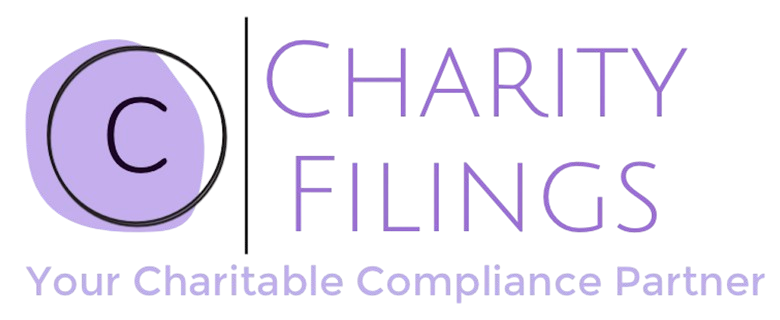Received a $2,000 fine from South Carolina? Consent agreement from Mississippi? State penalties can be overwhelming, but they’re solvable with the right expertise and approach.

PENALTY CRISIS
Don’t Let Penalties Derail Your Mission
State compliance penalties feel like a crisis because they are one. When you’re facing thousands of dollars in fines, consent agreements, or registration suspensions, every day matters – but panic leads to costly mistakes.
With over 15 years of experience resolving nonprofit compliance penalties across multiple states, we know how to investigate what went wrong, navigate complex state requirements, and get your organization back in good standing.
We typically respond within 24 hours and prioritize urgent penalty situations.
Common State Penalties We Handle:
State Enforcement Authority
Any state can take enforcement action against nonprofits operating out of compliance, and they have several tools at their disposal to ensure adherence to charitable solicitation laws. State enforcement actions can include:
Penalty Structure Variations: Some state late fees are flat, one-time charges while others assess monthly penalties that compound over time. Monetary penalties can vary greatly and are often determined by the severity of the violation, the organization’s compliance history, and the state’s enforcement priorities.
Long-Term Consequences: Consent agreements, voluntary compliance agreements, and registration revocations are often reported in perpetuity on state charity databases, making it difficult for organizations to put distance between themselves and the violation in the eyes of donors, grantmakers, and the public. This permanent visibility can impact fundraising effectiveness and organizational reputation for years to come.
💰 Monetary Fines & Late Fees
South Carolina: $2,000+ fines for late or missing charitable solicitation filings
Pennsylvania & North Carolina: $25/month late fees that add up quickly over time
Ohio: $200 flat fee penalties for compliance violations
Rhode Island: Discretionary penalties calculated by the state based on violation severity
Florida: Late fees plus potential monetary penalties in settlement agreements
California: Can assess penalties at their discretion, though enforcement varies
📋 Consent Agreements & Compliance Settlements
Mississippi: Formal settlement agreements with monetary penalties – we help you understand terms and ensure compliance
Maine: Consent agreements requiring specific corrective actions and ongoing compliance monitoring
Florida: Voluntary Compliance Agreements that often include monetary penalties as part of settlement terms
Wisconsin: Assurance of Compliance agreements requiring adherence to specific compliance conditions
⚠️ Registration Suspensions
Multiple States: Loss of ability to solicit donations or operate until compliance is restored
Reinstatement Requirements: Complex processes that vary significantly by state
🔍 Investigation Notices
State Charity Divisions: Formal investigations into compliance violations (overseen by Attorney General offices in most states, Secretary of State offices in others)
Required Responses: Time-sensitive submissions with specific documentation requirements
Why State Penalties Happen
Common Causes We See:
- Late or missing annual reports with required financial disclosures
- Failure to register before soliciting donations in a state
- Incorrect financial reporting or incomplete Form 990 submissions
- Missed renewal deadlines due to poor deadline management
- Inadequate record keeping that can’t satisfy state audit requirements
- Previous provider mistakes that went unnoticed until penalties were issued (Learn the warning signs of poor service →)
- Ignored deficiency letters that escalated to penalty situations (Get deficiency letter help →)
The Cascade Effect:
One missed filing can trigger penalties in other states, creating a compliance crisis that feels overwhelming to manage internally.
Our Penalty Resolution Process:
Step 1: Complete Investigation (24-48 hours)
Before we file anything or negotiate with states, we research exactly what happened:
- Review your complete filing history across all states where penalties were issued
- Analyze penalty notices and correspondence to understand specific violations
- Identify root causes – was this a one-time mistake or systemic compliance failure?
- Assess your current status in all states to prevent additional penalties
Step 2: Strategic Response Planning
We develop a comprehensive approach based on your specific situation:
- Immediate actions to prevent additional penalties or escalation
- Documentation gathering for penalty appeals or mitigation requests
- State-specific strategies – each state has different penalty resolution processes
- Timeline management to meet all response deadlines
Step 3: Professional State Communication
We handle all correspondence with state agencies:
- Formal penalty appeals when violations were not intentional or were caused by circumstances beyond your control
- Mitigation requests to reduce penalty amounts based on your organization’s compliance history and financial situation
- Corrective action plans that demonstrate your commitment to ongoing compliance
- Compliance guidance for consent agreement requirements when legal settlements are involved
Step 4: Compliance Restoration
Getting penalties resolved is only half the solution:
- Bring all filings current to restore good standing
- Implement systems to prevent future violations
- Ongoing monitoring to ensure continued compliance
- Regular communication about upcoming deadlines and requirements
What Makes State Penalty Resolution Complex
Every State is Different:
There is no “one-size fits all” when it comes to state enforcement actions. For example:
- South Carolina requires specific documentation and has rigid penalty structures
- Mississippi and Florida prefer settlement agreements with monetary penalties over simple fines
- Pennsylvania and North Carolina compound monthly late fees that can become substantial over time
- Ohio assesses flat fee penalties regardless of organization size
- Rhode Island uses discretionary penalty calculations that can be unpredictable
Timing is Everything:
- Appeal deadlines are often 30 days or less from penalty notice
- Payment requirements may be immediate while appeals are pending
- Additional penalties can accrue during the resolution process
- Registration suspensions can halt fundraising immediately
Documentation Requirements:
- Financial records must support any claims about your organization’s situation
- Filing history across all states affects penalty mitigation arguments
- Corrective measures must be documented and verifiable
- Legal compliance with state-specific penalty resolution procedures
Why Choose Professional Penalty Resolution
We Know
What Works:
After 15+ years of penalty resolution across multiple states, we understand:
When to fight penalties vs. when to negotiate quick resolution
Which arguments state agencies find compelling for penalty reduction
What documentation is required for successful appeals
We Prevent Costly Mistakes:
Incorrect appeals can result in higher penalties or lost appeal rights
Missed deadlines can eliminate your options for penalty reduction
Inadequate documentation weakens your position in negotiations
Poor communication with state agencies can escalate simple violations
We Provide Realistic Expectations:
Honest assessment of your penalty reduction chances
Clear timelines based on each state’s actual processing requirements
No false promises about outcomes we can’t control
Transparent communication throughout the resolution process
Realistic Expectations About Consent Agreements:
What We Can Do:
- Help you understand the terms and requirements of consent agreements
- Ensure compliance with all settlement conditions and deadlines
- Implement systems to meet ongoing requirements
- Coordinate with legal counsel when consent agreement terms are disputed
What We Cannot Do:
- Negotiate or modify existing consent agreements (that requires legal counsel)
- Make consent agreements disappear – they’re legal settlements that must be honored
- Reduce agreed-upon fines once consent agreements are signed
When Legal Counsel is Needed:
If you want to challenge a consent agreement’s terms or negotiate different conditions, you’ll need an attorney who specializes in nonprofit law. We can work alongside your legal team to ensure compliance implementation.
Penalty Prevention: What We Implement
After Resolution:
- Comprehensive compliance calendar with all state deadlines
- Early warning systems for upcoming filing requirements
- Regular status monitoring across all your registered states
- Proactive communication about changes in state requirements
Ready to Resolve Your State Penalties?
Don’t let compliance penalties threaten your organization’s ability to fulfill its mission. Professional penalty resolution can often reduce fines, negotiate manageable payment terms, and restore your good standing faster than trying to handle it internally.
Contact us today for penalty resolution help:
Give us a call
Send us an email
The sooner we start investigating your penalty situation, the more options we have for resolution. State deadlines don’t wait – but professional help is available.
Received a deficiency letter that led to penalties? Learn about deficiency response services →
Dealing with Facebook fundraising blocks in California? Get specialized California help →
Facing registration suspension or revocation? Get reinstatement help →

